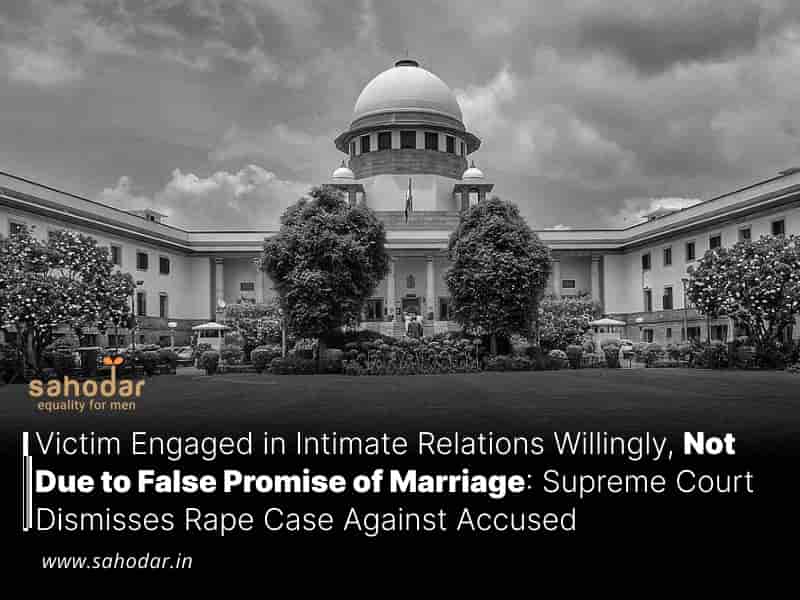The Apex Court allowed Criminal Appeals of an accused against the Allahabad High Court’s Order upholding a Summoning Order issued against him.
The Supreme Court has dismissed the proceedings against a man accused of raping a woman under the pretext of a false promise of marriage.
The case involved criminal appeals filed by the accused challenging the Allahabad High Court’s decision, which had upheld the summoning order against him.
The two-Judge Bench of Justice Vikram Nath and Justice Sandeep Mehta observed, “… it is clearly discernible that in the present case, the complainant had agreed to indulge in intimate relations with the appellant on the accord of her own desires and not on the basis of any false promise of marriage made by the appellant. Therefore, while the present case may involve a breach of promise, it does not constitute a case of an inherently false promise to marry.”
The Bench stated that, given the circumstances, it cannot be concluded that the accused secured the Complainant’s consent for a physical relationship through a false promise of marriage.
Factual Background
According to the prosecution, the appellant-accused met the complainant on the social media platform Instagram, where their friendship soon developed into a romantic relationship. He allegedly assured her that they would marry and live together as husband and wife. Based on this promise, he is said to have engaged in physical relations with the complainant on multiple occasions at different locations. Furthermore, it was alleged that as a result of these repeated encounters, the complainant conceived in 2022, and the accused coerced her into terminating the pregnancy through medication.
The accused allegedly started assaulting the complainant and used caste-based slurs, saying he would not marry her because he was a Yadav and she belonged to a lower caste. As a result, an FIR was filed against him under various sections of the Indian Penal Code (IPC) and the SC/ST Act. The Trial Court summoned both the accused and his father. However, the High Court later canceled the summons against his father but upheld it against the accused. This led him to challenge the decision in the Supreme Court.
Reasoning
The Supreme Court after hearing the contentions of the counsel, noted, “Admittedly, during his visit to Varanasi, the appellant himself had asked the complainant to elope with him and get married, but it was the complainant who insisted on waiting till he secured a job. Therefore, while the prosecution story primarily rests on the fact that the appellant had lured the complainant to develop physical relations with him on the promise to marry her in future, this very statement of the complainant suggests the contrary.”
The Court pointed out that since the complainant refused the appellant’s marriage proposal, it cannot be said that he broke any promise—if he ever made one.
“Thus, the theory put forth by the prosecution in the chargesheet that the appellant induced the complainant to indulge in physical relations under a false promise of marriage is neither corroborated nor established by the best evidence available on record, which is in the form of the statement of the complainant recorded under Section 164 CrPC”, it added.
The Court also observed that the complainant’s statement does not include any mention of being insulted or abused by the appellant due to her caste. Therefore, even at its highest, the allegations in the charge sheet do not establish the offences under the SC/ST Act against the appellant.
“… we are of the opinion that the present case appears to be one where a consensual physical relationship between two adults has turned sour due to certain intervening events. Hence, allowing the prosecution of the appellant for the offences mentioned above would tantamount to sheer abuse of the process of law and nothing else”, it concluded.

